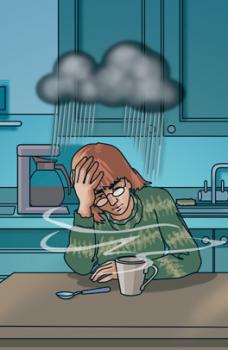Dysthymia is more commonly known as mild depression. The symptoms aren’t as extreme or strong as the ones for major depression. But they are real and do affect you just as badly. With dysthymia, you constantly feel in a low mood, and it never seems to end. Sometimes, people with dysthymia also experience major depression on top of already being depressed.
How do I know if I have dysthymia and not major depression?
While mild depression is part of the depression scale, it’s obviously not as severe as major depression. However, any type of depression will negatively impact a person’s life.
Dysthymia makes you feel like you’re constantly down in mood. This mild depression usually persists for two years or more. It’s not just a down in the mouth kind of attitude or mood. It’s real and persistent. Mild depression impacts a person’s daily living, relationships, and work.
Because dysthymia is part of the depression spectrum, it shares symptoms common to all types of depression. Some symptoms include:
Changes in eating habits. Either you have a poor appetite or eat too much.
Low energy.
Trouble with sleep.
Difficulty making decisions and poor concentration.
Low self esteem.
A feeling of hopelessness.
Is there a cure?
There is no “cure” for any type of depression. It is, however, treatable. There are medications, cognitive therapy, holistic techniques, and self care.
The antidepressants most helpful for treating this type of depression are Prozac, Paxil, Zoloft, Amira, Tofranil, and Solian. However, most of these drugs have serious side effects. It’s best to be aware of these and let your doctor know if you start experiencing any side effect.
Self care can really help with low mood. Try exercise, yoga, or mindfulness. Participate in a favourite hobby or activity, but don’t push yourself with the idea that you need to completely enjoy what you’re doing.
Mild depression often goes untreated because people think it’s just attitude. But mild depression is a real medical issue that needs to be treated. If you’ve been feeling down in mood for more than two years, please go visit a medical professional.
Find me on twitter @tereziafarkas


